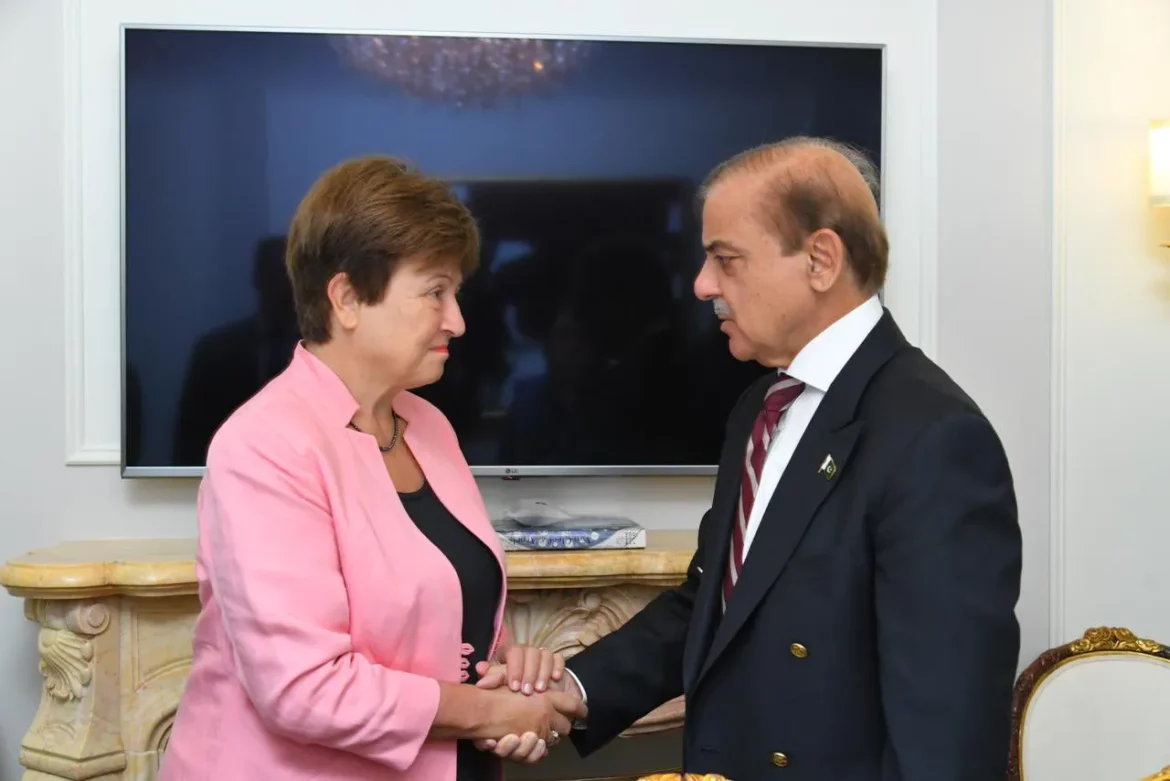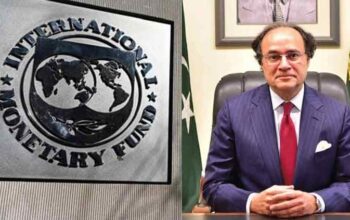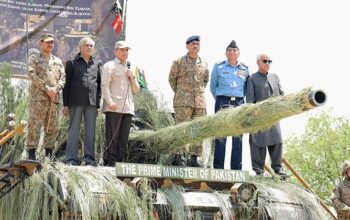By Staff Reporter
ISLAMABAD: Prime Minister Shehbaz Sharif said his government has no option but to implement harsh measures under the ongoing International Monetary Fund (IMF) bailout programme.
“The government cannot even offer fair subsidies to farmers, the industrial sector or help the flood-affected people without consulting the IMF… it’s a painful reality,” PM Sharif told a conference in Islamabad. “The coalition government does not want to burden people any further but we have no other option in short term. We have to implement the IMF programme.”
The fund’s programme is a lifeline to the country as Pakistan is in an economic crisis, facing high inflation, a depreciating currency, depleting foreign currency reserves, and a current account deficit. The Civid-19 crisis and high commodity and energy prices have exacerbated the country’s debt problems. It has been struggling to pay for its imports and debt obligations as its official liquid foreign exchange reserves shrank $6.3 billion in the last week.
Separately, Finance Minister Ishaq Dar also admitted that the country had plunged into a serious economic crisis “but it did not mean that the country could not come out of existing difficult economic patch”.
“There is a need of introspection and (we) should not repeat adventures and bad experiments due to which the country was passing through a difficult phase…they have left the economy at a stage where it did not deserve (to be),” Dar told brokers at Pakistan Stock Exchange.
Minister Dar also said the country would complete the IMF program and it will “absolutely not” default on debt obligations despite the crisis.
“I do not know that those, (who) are drum beating of default, for who they are working … Please don’t listen (to) them instead disseminate information that Pakistan will not default.”
Minister Dar said all arrangements were in place for repayment on all external loans and liabilities.
Pakistan entered the $6 billion IMF programme in 2019, which was raised to $7 billion this year. The country will get $1.18 billion after the programme’s ninth review, which is currently pending. The government already borrowed around $5.1 billion in foreign loans in the first five months (July-November) of the current fiscal year to pay back previous years’ borrowings.
Pakistan’s ninth review staff-level talks with the IMF for the release of its next tranche has been delayed since September, though finance minister Ishaq Dar repeatedly said all targets for the IMF’s ninth review had been completed.
The ongoing parleys have so far remained inconclusive mainly because of the inability of both sides to strike a consensus on four major contentious issues, including energy sector circular debt that has peaked at Rs4 trillion.
PM Sharif called the circular debt in the power and gas sectors a “mega challenge”. “Our circular debt has now reached four times higher than the development budget.”
The government recently announced several austerity measures, including plans to shut down markets and shopping centres early and work from-home for government employees, to save energy costs amid the economic crisis. The federal government is currently consulting with provincial governments to finalize the energy conservation policy.
Copyright © 2021 Independent Pakistan | All rights reserved




